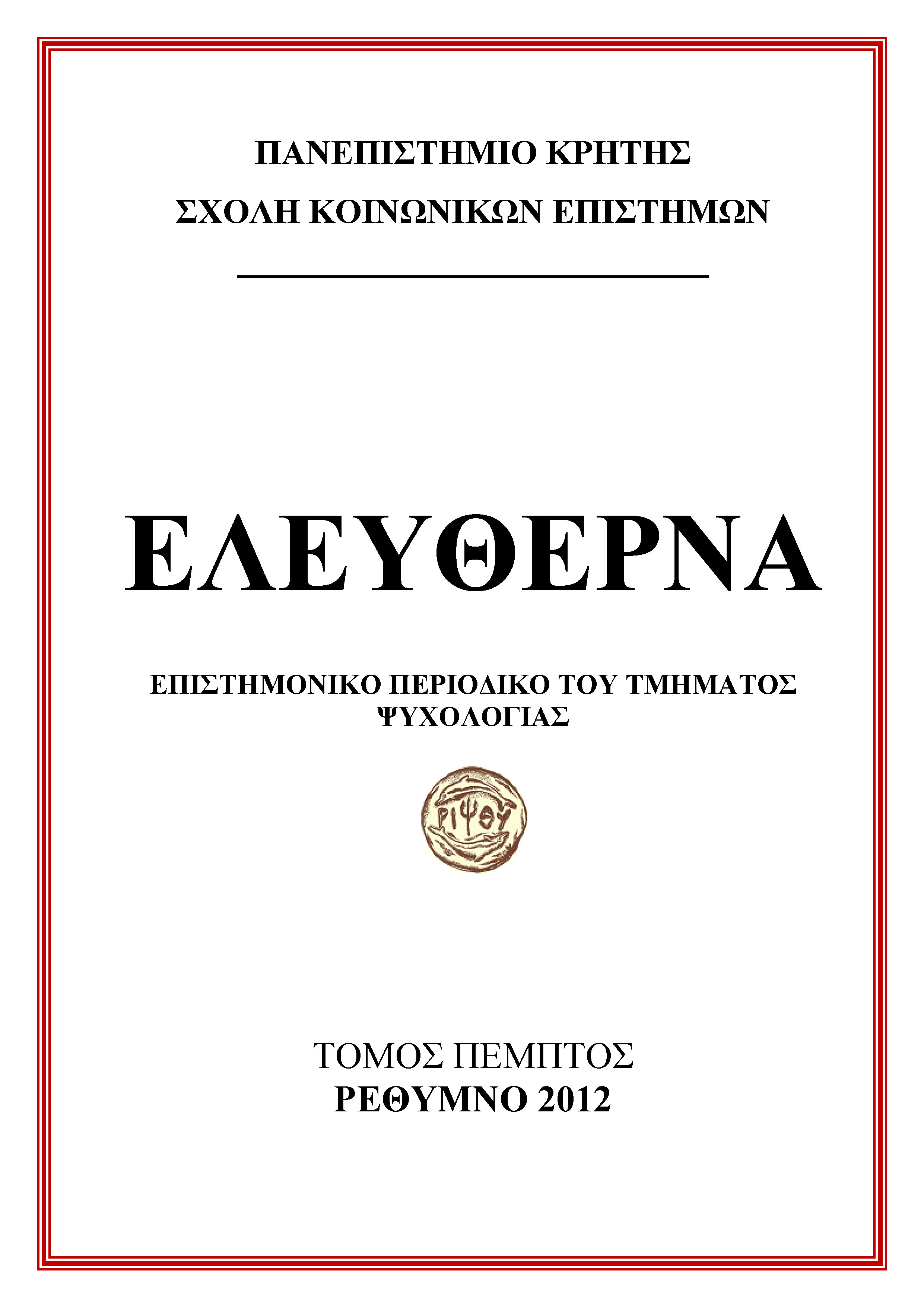Lacan and the literature
DOI:
https://doi.org/10.26248/eleutherna.v5i0.118Keywords:
desire, Ate, Antigone, LacanAbstract
Reading a tragedy under the psychoanalytic view differs from its philological reading. Both Freud and Lacan demonstrate this argument through their writings, emphasizing the pathway the author opens with his “work of art” which permits the analyst to enrich his theoretical and clinical corpus.
The reading of Sophocles’ Antigone, the tragedy that Lacan deals with in his Seminar "The ethics of psychoanalysis", is the reference axis of this paper. We intend to highlight what really constitutes the originality of this reading and to what extent it contributes to psychoanalysis. In particular, we focus on the term “the desire of Antigone”. What are the coordinates of this desire, and why the term "Ate" (Άτη) is inextricably linked with this desire? We examine what allows us to say that Antigone could be the example of a subject that followed his desire to its ultimate consequences.
Downloads
Published
How to Cite
Issue
Section
License
This work is licensed under a Creative Commons License Attribution-NonCommercial-ShareAlike 4.0 International (CC BY-NC-SA 4.0).
Under this license EJPBS provides immediate open access to its content on the principle that making research freely available to the public supports a greater global exchange of knowledge.


